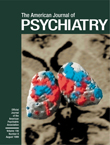Seminars in Old Age Psychiatry
Mental health professionals who work in geriatric settings should find Seminars in Old Age Psychiatry a nifty and readable reference paperback to carry in their valise to the senior care clinic or nursing home. There is a logical organization of chapters, which focus on such topics as assessment and epidemiology as well as descriptions of the more typical disorders (e.g., Alzheimer’s disease and depression) and the less typical but still relatively frequent disorders (e.g., mania and late-onset schizophrenia). There are also discussions of preferred pharmacological and psychological treatments. There are frequent boxed summaries of subjects under discussion to emphasize and repeat the narrative. For example, on page 55 there is a summary of symptoms suggestive of different types of dementia, including the following: vascular dementia has sudden onset; Pick’s disease has personality and mood changes; and normal pressure hydrocephalus has the classic triad of dementia, gait disturbance, and incontinence.
Recommendations for antidepressant medication include two principles: proceed cautiously and clearly define success or failure. From my own experience, it is often important to start slowly but attempt to titrate doses up for therapeutic effect. Tricyclics are usually very reliable and cheaper than other antidepressants. There is no evidence that any drug or class of drug is superior. Side effects of tricyclics are anticholinergic; postural hypotension is the most dangerous side effect. All selective serotonin reuptake inhibitors (SSRIs) cause frequent side effects of nausea, diarrhea, insomnia, and anxiety or agitation. However, tricyclics are less well tolerated in medically ill patients. Antidepressants have also been shown to be helpful with dementia patients—monoamine oxidase inhibitors (type A and type B) are successful in improving memory and concentration. SSRIs reduce aggression and irritability. Buspirone and trazodone also are often helpful with agitation and aggression.
Among neuroleptics, haloperidol is often used but often causes extrapyramidal side effects. Chlorpromazine is not recommended because of hypotension. Risperidone, olanzapine, and clozapine are often well tolerated and have lower side effect profiles.
The chapter on psychological treatment considerations in the elderly is particularly good. Dependency, loss of sexuality, and fear of death are frequent, even common, issues. Decompensation of lifelong defenses is often part of a reason for referral. Personal warmth and kindness should always be part of therapeutic tact, but gentle and firm confrontation is often an important therapeutic tool, too.
I enjoyed this book and recommend it.



